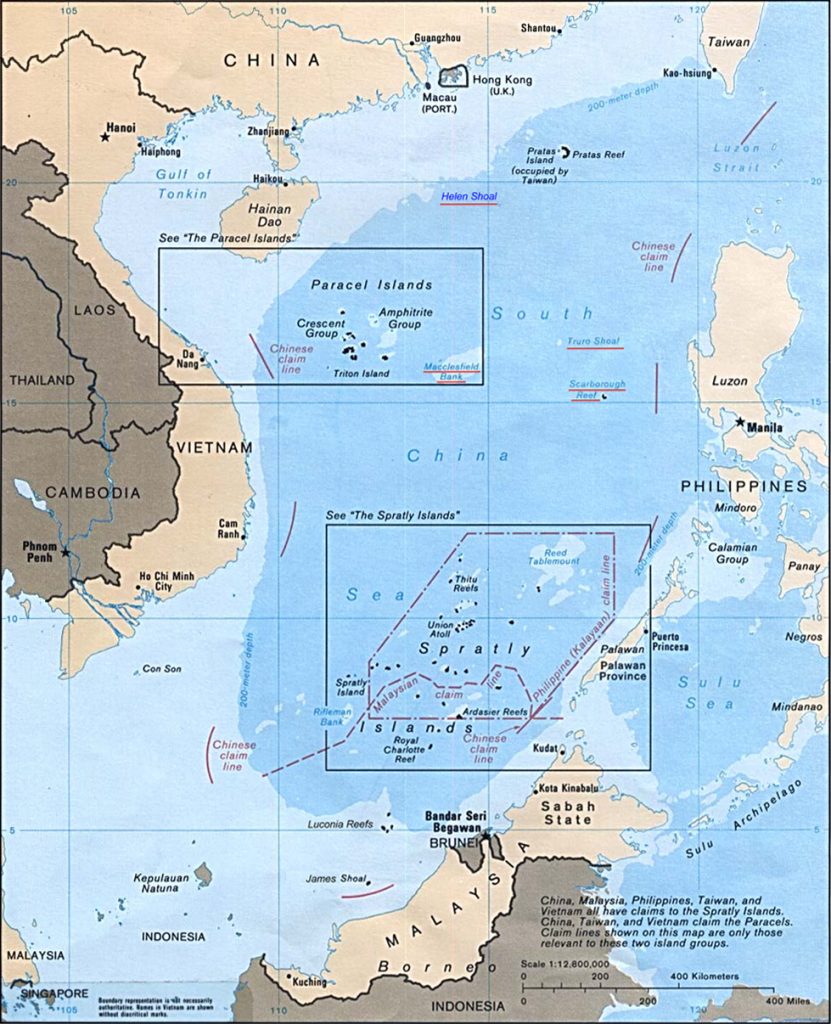|
In 2011, Obama announced his Asia pivot, prioritizing America reasserting its Pacific presence – intending to advance its military footprint.
The aim is challenging China’s growing economic, political and military strength, along with checking Russia – pressuring Asian nations to ally with Washington’s agenda.
On Friday, Beijing’s Foreign Ministry spokesman Hong Lie blasted Washington’s increasing militarization of the South China Sea – escalating tensions irresponsibly.
He affirmed Beijing’s intent not to militarize the Nansha Islands and surrounding waters, sovereign Chinese territory. Installing defensive missiles on the territory is its legitimate right.

On Thursday, State Department spokesman Admiral John Kirby claimed Washington “see(s) no indication that (Beijing’s) militarization…stopped. (I)t’s doing nothing…to make the situation…more stable and…secure.”
Hong responded, saying regional demilitarization involves more than a single country. “There should not be double standards or multi-standards for demilitarization in the South China Sea, and the process requires joint efforts from countries in the region and beyond.”
Provocative US air and naval military patrols near Chinese territorial waters and airspace, along with joint exercises with area allies, increase regional tensions and instability.
Hong explained US actions are “the real militarization of the South China Sea,” risking Sino/American confrontation.
China’s Foreign Minister Wang Yi reacted sharply to Western media reports, falsely alleging Beijing’s South China Sea militarization.
He stressed “limited and necessary national defense facilities on China’s territory” is its sovereign right, not provocative militarization.
Beijing’s Defense Ministry spokesman Yang Yujun blasted US policy, saying China “expresses its serious concern over US activities to militarize the South China Sea region.”
“Such actions…would inevitably arouse suspicion,” indicating Washington intends regional “chaos.”
Yang’s remarks followed US Pacific Command head Admiral Harry Harris criticizing China’s legitimate right to pursue development in its sovereign waters.
Calling them “disputed” serves US imperial interests. Harris lied, claiming China’s “aggressive military buildup” undermines regional peace and stability.
Yang minced no words, saying “(t)he US side disregards and distorts the facts and plays up China’s military threat to sow discord between China and the littoral states in the South China Sea. We firmly oppose such actions.”
Last summer, Harris turned truth on its head, saying the South China Sea is “front and center in the tug-of-war between the majority of regional nations that want to maintain the status quo and China that wants to change it to suit its narrow self-interest.”
Washington demands Beijing halt land reclamation and development in its own territorial waters. John Kerry accused China of increasing militarization, ignoring Washington’s provocative actions worldwide.
Claiming legitimate Beijing activities threaten free navigation and area nations is typical US imperial arrogance, concealing its own increasing regional military footprint, risking possible Sino/American confrontation. Potentially confronting China or Russia militarily is sheer madness.
Stephen Lendman lives in Chicago. He can be reached at [email protected].
His new book as editor and contributor is titled “Flashpoint in Ukraine: US Drive for Hegemony Risks WW III.”
http://www.claritypress.com/LendmanIII.html
Visit his blog site at sjlendman.blogspot.com.
Listen to cutting-edge discussions with distinguished guests on the Progressive Radio News Hour on the Progressive Radio Network.
It airs three times weekly: live on Sundays at 1PM Central time plus two prerecorded archived programs.
|